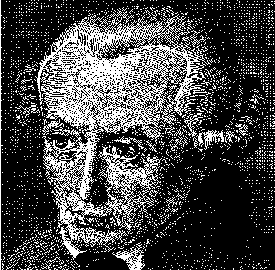Kant, Immanuel

(1724-1804)
Starry Heavens and Moral Law
Two things fill the mind with ever new and increasing admiration
and awe, the oftener and the more steadily we reflect on them: the
starry heavens above and the moral law within. I have not to
search for them and conjecture them as though they were veiled in
darkness or were in the transcendent region beyond my horizon; I see
them before me and connect them directly with the
consciousness of my existence. The former begins from the
place I occupy in the external world of sense, and enlarges my
connection therein to an unbounded extent with worlds upon worlds and
systems of systems, and moreover into limitless times of their
periodic motion, its beginning and continuance. The second begins
from my invisible self, my personality, and exhibits me in a
world which has true infinity, but which is traceable only by the
understanding, and with which I discern that I am not in a merely
contingent but in a universal and necessary connection, as I am also
thereby with all those visible worlds. The former view of a countless
multitude of worlds annihilates as it were my importance as an animal
creature, which after it has been for a short time provided with
vital power, one knows not how, must again give back the matter of
which it was formed to the planet it inhabits (a mere speck in the
universe). The second, on the contrary, infinitely elevates my worth
as an intelligence by my personality, in which the moral law reveals
to me a life independent of animality and even of the whole sensible
world, at least so far as may be inferred from the destination
assigned to my existence by this law, a destination not restricted to
conditions and limits of this life, but reaching into the infinite.
(The
Critique of Practical
Reason , CONCLUSION)
God, Freedom and Immortality
Metaphysics has for the proper object of its inquires only three
ideas: God, Freedom, and Immortality.
(The
Critique of Pure Reason, p 257)
The transcendental speculation of reason relates to three things:
the freedom of the will, the immortality of the soul, and the
existence of God.
(The
Critique of Pure Reason, p 430 )
Philosophy and Faith
I have therefore found it necessary to deny knowledge [of
the existence of God, Freedom and Immortality], in order to make room
for faith. The dogmatism of metaphysics, that is, the
preconception that it is possible to make headway in metaphysics
without a previous criticism of pure reason, is the source of all
that unbelief, always very dogmatic, which wars against morality".
The transcendental speculation of reason relates to three things:
the freedom of the will, the immortality of the soul, and the
existence of God.
(The
Critique of Pure Reason, p 29)
Faculty of Understanding
Thoughts without content are empty, intuitions without concepts
are blind.
(The
Critique of Pure Reason, p 93)
Personality
Personality is "the unity of self-consciouness".
(The
Critique of Pure Reasoon p. 342)
Personality is self-conciousness of "freedom and independent on
the mechanism of nature".
By their perosonality alone human beings are ends in themselves.
(The
Critique of Practical
Reason )
from
the
Chinese University of Hong Kong
Kant on the Web
Back to Non-church Home